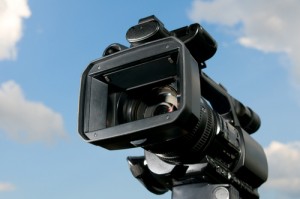 By Joshua Salinas and Jessica Mendelson
By Joshua Salinas and Jessica Mendelson
Think that patents, trademarks, and copyrights are the only intellectual property where reasonable royalties are available? Think again! On September 27, 2012, a district court for the Northern District of Oklahoma found “exceptional circumstances” existed to award a royalty injunction for the misappropriation of trade secrets. Skycam, LLC v. Bennett, No. 09-CV-294-GKF-FHM, 2012 WL 4483610 (N.D.Okla. Sept. 27, 2012).
Background Facts and Procedural History
The case involves two competitors in the aerial camera industry, Skycam and Actioncam. Both companies manufacture aerial camera systems used for sporting event broadcasts. The cameras are suspended by a set of cables over the playing field and maneuvered to provide a unique above-action perspective during live sporting events. Many viewers who watch football games or soccer matches are familiar with these “flying” robotic-like cameras. Videos of these aerial cameras in action can be seen here.
A dispute arose when Skycam’s Chief Engineer, Patrick Bennett, allegedly left to join a competitor, Actioncam. Bennet was responsible for the research and development of Skycam’s aerial camera systems and allegedly had full access to Skycam’s engineering and design documents. Skycam alleged that Actioncam developed a competitive aerial camera system under the guidance of Bennett and through the use of Skycam’s trade secrets.
Skycam sued Bennett, alleging he had breached a non-disclosure agreement, misappropriated trade secrets, and engaged in unfair competition. The trade secrets allegedly misappropriated included the use of lasers and reflectors for aerial survey, site surveys and field guides, management techniques, obstacle avoidance systems, as well as numerous other Skycam systems.
In September 2011, a jury found in favor of Skycam on the breach of contract, misappropriation of trade secret, and unfair competition claims, and awarded damages to Skycam. Skycam subsequently filed a motion for permanent injunction on the misappropriation of trade secrets and unfair competition causes of action. Skycam sought a prohibitory injunction that would prohibit Actioncam from utilizing Skycam’s trade secrets and from placing false and/or misleading advertisements and representations about Actioncam’s systems. Skycam also requested, in the alternative, reasonable royalties under the Oklahoma Uniform Trade Secrets Act (“OUTSA”) should the court find “exceptional circumstances” existed regarding Actioncam’s future or potential use of Skycam’s trade secrets.
Trade Secret Misappropriation Claim
With respect to the trade secret misappropriation claim, rather than granting the prohibitory injunction, the court held a royalty injunction was appropriate. The court found that granting an injunction would eliminate Actioncam’s ability to use its aerial camera systems and essentially put Actioncam out of business. The court further reasoned that a prohibitory injunction would eliminate competition and technological innovation in the relatively small aerial camera market, and thus, would be harmful to the public interest. Thus, the court found the imposition of a royalty was adequate to protect the parties’ interests, and the case presented “exceptional circumstances” that would permit such a remedy under the OUTSA.
On this basis, the court awarded damages based on royalties of $5000 per event covered by Actioncam during the period of September 3, 2011, through February 28, 2013. This time period was based on Skycam’s expert’s testimony stating that it would take approximately three to four years for a camera system like Skycam’s to be developed.
Unfair Competition Claim
The court granted the injunction for unfair competition, finding “the threatened injury outweighs the harm that the injunction may cause” and that an injunction would not “adversely affect the public interest” as required by Tenth Circuit law.
In the original jury verdict, five different types of false and misleading statements were alleged as the basis for the alleged violations of the Oklahoma Deceptive Trades and Practices Act and the Lanham Act: statements regarding (1) speed and accuracy, (2) field graphics for a “First and Ten line,” (3) secondary supporting cable and power safety reels, (4) other capabilities of the Skycam system, and (5) other capabilities of the Actioncam system. The jury failed to specify which types of statements it found false and misleading, and the defendants argued that Skycam should not be entitled to an injunction prohibiting all five types of statements as a result. However, the court found otherwise, since, “where a verdict is general, a court must presume that any and all issues were decided in favor of the prevailing party.”
Based on the jury verdict, the court found irreparable injury, and found the balance of hardships weighed more heavily in Skycam’s favor. The court granted an injunction prohibiting false or misleading claims regarding any of the previously mentioned topics. Finally, the court also required Actioncam to place a corrective advertisement on any public advertising over the next six months.
Takeaways
This case reminds us that reasonable royalties are available under the UTSA for trade secret misappropriation. Although reasonably royalties were not available under the UTSA when the statute was originally drafted in 1979, its subsequent amendments have since allowed this remedy. States differ in the availability and application of reasonable royalties for trade secret misappropriation based on their implementation of the UTSA. California, however, has recently allowed this remedy regardless of whether actual damages are unprovable as a matter of fact or law. See Ajaxo, Inc. v. E*Trade Financial Corp., 187 Cal. App. 4th 1295 (2010).
Thus, trade secret holders should consider requesting reasonable royalties as an alternative to a permanent injunction when appropriate. While prohibitory injunctions are often preferred, this alternative remedy helps trade secret holders avoid leaving the court empty handed.